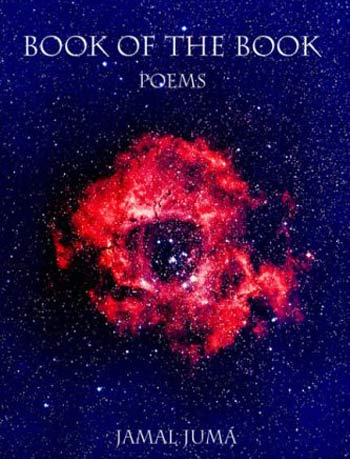
Book of the Book: Poems
Late in the 19th century when Arab poets discovered the literature of others the effect on them was one of an explosion that has continued to this day. This was inevitable if only because since the 12th century, Arab poetry, and literature in general, had become a closed system smothering in its claustrophobic isolation.
And, like all closed systems, it was bound to become subject to the second law of thermodynamics.
The first trigger for this was provided by French poetry which has continued its active presence in the consciousness of many contemporary Arab poets to this day. We have all seen the countless imitations of Guillaume Apolinnaire, Saint-John Perse, Louis Aragon and Paul Eluard produced by Arab poets, especially from the Levant region. Next, it was the turn of T.S Eliot, Ezra Pound, and Edith Sitwell to inspire numerous Arab imitators.
It was thus only a matter of time before Arab poets would venture further afield to discover the poetry of other, non-Western, nations. One such discovery concerned the haiku, the Japanese form in which 5-7-5 syllables in three lines form a short poem representing a moment of enlightenment (satori).
Jamal Juma’s delightful collection appearing under the title of “Book of the Book” may well be the result of his encounter with the Japanese form. But, rather than imitating the borrowed form, Juma has used it for his own purposes and on the basis of his own aesthetics. The result is a new form that looks like a cross between the haiku and the ruba’ee (quatrain) made famous by Omar Khayyam. Juma may well be the inventor of a new form which can be called the thulathee (the tritrain), although some of his poems come in just two hemistiches, others in four or five.
Unlike haiku in which concrete images of nature are used to portray a mood, Juma’s thulathees use abstract metaphors to delve into deeper issues of existence.
Here is one example:
The book
That accuses of others of Treason
Is itself a Traitor.
Here is another:
Heaven is a Book
For two eternal Readers
The Sun and the Moon.
Also this one:
Humanity is a Book.
We are different Chapters
That complete each other.
We are a long way from the lengthy, and often formulaic, qasidahs (odes) that both made an unmade Arab poetry over more than 12 centuries. The thulathee is the poetry of an age in which the clock of existence moves faster and faster. This is the age of instant news, coffee, and desperation. The question is how to cling to slowness as a virtue, and how not to be rushed along on a conveyor belt of events that allows for not a moment of contemplation.
For Juma the book is something of an arch metaphor, the supreme image that reflects all other images of existence, both seen and unseen. Here we are in the realm of what the 18th century philosopher Mulla Sadra of Shiraz described as “ the realm of the imaginal” as opposed to imaginary. Juma dos not imagine things. He steals from the imaginal the deeper sense of the images, much like Prometheus robbing the gods of their fire.
For Juma darkness is a book with the candle as its insatiable reader. In other words- but do we need other words?- only light can decipher darkness, just as only freedom can overcome tyranny.
Is perfection possible? Juma says: yes, but only in death. The shooting star is the perfect book is written in one sentence.
In the world according to Juma reigns a Manichaean truth: all that is good, noble and, worthy of preservation, is symbolised by the book while all that is dark, despotic and deadly belongs to those who cannot read. The tyrant, for example, is an illiterate who cannot read the book of the people just as darkness cannot read the book of light.
Despite its modern imagery and themes, Juma’s poetry retains its roots deep in the classical tradition of Arab poetry. Some phrases look as if they have emerged whole from a qasidah by Imra ul-Qais while Juma’s voice, even when it speaks with a Western accent remains distinctly Arab.
Despite a few minor slips, Nina Larissa Basset has achieved an excellent translation of poems that, because of their shortness, might appear easy to render in a different language. But the fact is that translating longer poems is often easier if only because the translator has some room for manoeuvre. In a poem of only17 syllables, however, the translator is walking on a tightrope; the trick is how not to fall one way or another. All in all Ms Basset has been a good trapezist.
Looking for a Christmas present for your English-speaking friends? Well, look no further. You could do no better than offering Jamal Juma’s beautiful “ Book of the Book”.
